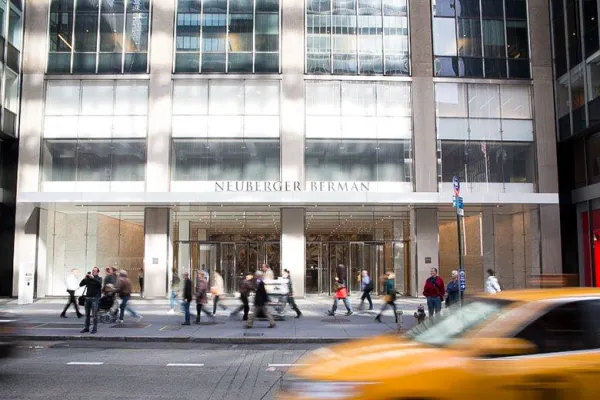Pershing Square Capital Management’s William Ackman has ramped up his attack on nutrition supplement maker and multi-level marketing company Herbalife. The New York City hedge fund manager fired off a letter to its outside auditor, PwC — and sent copies to the Securities and Exchange Commission and three Herbalife directors who sit on PwC’s audit committee — warning that the Big Four accounting firm could face “substantial liabilities” for signing off on Herbalife’s books. “If we are correct that Herbalife is a pyramid scheme and PwC fails to accurately inform investors of this risk, PwC may incur substantial liabilities in the event of the company’s failure,” Ackman wrote in the letter, which was obtained by CNBC. Investors apparently are still not worried. The stock closed Wednesday at $66.60, down 1.64 percent.
—
Sotheby’s finally responded to activist investor Dan Loeb, whose New York City hedge fund firm took a 5.7 percent activist stake in the art auctioneer. The company promised to present to investors a capital financial plan by early 2014 “to optimize the balance sheet, improve the cost of capital and manage financial policies in a way that supports Sotheby’s strategy and delivers outstanding value to shareholders.” Sotheby’s also said it is considering a potential share repurchase and/or an increase in its dividend. Other significant hedge fund investors with sizable stakes in the company include San Francisco-based Marcato Capital Management — headed by Richard McGuire III, who previously worked for Loeb nemesis William Ackman — with 6.7 percent of the stock, and New York City-based Trian Partners, which owns about 3 percent of the shares. The stock closed up 2 percent, at $48.34.
—
Asia-Pacific hedge funds are the top performers for the past year, according to a new report from London-based data collector Preqin. These funds posted 18.61 percent net returns over the past 12 months since July 2013, compared with 15.38 percent and 11.97 percent posted by North America- and Europe-focused funds, respectively. Not surprisingly, 41 percent of Asia-Pacific-based hedge fund investors said they plan to increase their allocations to hedge funds over the coming 12 months. What’s more, 53 percent of investors surveyed who are not based in the Asia-Pacific region said they will mull increasing their allocation to hedge funds targeting investments in the region over the next 12 months. So far in 2013, Asia-Pacific-focused funds managed by firms based in the region have generated a 6.91 percent return, nearly three times higher than funds managed by firms based elsewhere but focused on the region, at 2.40 percent.
—
Apple’s presentation on Tuesday of its latest iterations of the iPhone apparently did not impress the folks who follow the stock at Credit Suisse. The investment bank Wednesday downgraded its rating on the shares, to Neutral from Outperform, although it retained its $525 target price. “We remain disappointed with Apple’s decision to remain a premium priced smartphone vendor, and this continues to competitively expose the company and limits its TAM (total addressable market) and growth,” it stated in a note sent to clients. As a result, Credit Suisse also lowered its earnings estimate for fiscal 2014 by 8 percent. The stock closed Wednesday at $467.89, down 5.41 percent. Meanwhile, others firms cut their price targets on the stock but retained their rating.
In an interview with CNBC after the stock market closed, Carl Icahn called the stock a “no brainer,” saying he bought “quite a bit” of shares Wednesday between $465 and $467. “It is extremely cheap,” he said, especially if you back out the cash. Cash and short-term investments exceeded $42 billion at the end of the most recent quarter. He says the big kicker for the stock is if the company does a buyback of at least $150 million, which he is pushing management to do. “Apple is one of my best right now,” he stated. Icahn did not own any shares of Apple at the end of the second quarter.
—
Several hedge funds with roots in Julian Robertson, Jr.’s famed New York City hedge fund, Tiger Management, made money in August. Hound Partners, a Tiger Seed headed by Jonathan Auerbach, rose 2 percent in the month and is now up 14 percent for the first eight months of the year. Glade Brook Capital Partners, founded less than two years ago by Paul Hudson (an alum of Tiger spin-out Shumway Capital Partners), was up 1 percent in August and is up 6 percent for the year. Scott McLellan — manager of Marble Arch and known as a Tiger Grandcub because he once worked for Hound — was up 1.5 percent in March, pushing up his gains for the year to 3.5 percent.






